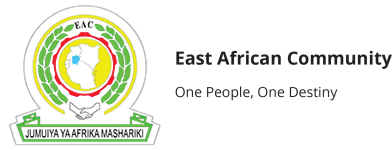Pollution and Waste Management
Overview
The problems of pollution are not limited to the borders of a country. The harmful effects extend beyond the borders of the originator of the pollution. That is why development of policy frameworks for Pollution Control and Waste Management is a priority for the Environment and Natural Resources Sector of the EAC Secretariat.
All Partner States are parties to the Eastern African Regional Framework Agreement on Air Pollution (Nairobi Agreement, 2008). The States agreed to develop actionable targets to address air pollution in the following key areas: Transport, Industry and Mining, Energy, Waste, Vegetation Fires, Indoor Air pollution, Urban Planning and Management. The EAC is working on development and harmonisation of standards and regulations on pollution control and waste management. The EAC Secretariat is working on the implementation of the provisions of the Eastern African Framework Agreement on Air Pollution, and developing the EAC Electronic Waste Management Framework and Management of Plastic and Plastic Waste Disposal.
Pollution Control
Almost 90% of the energy sources in households in the EAC region is from traditional technologies that contribute to air pollution, negatively impacting human health and the environment. This is a problem that Partner States are working hard to resolve. All EAC Partner States have environmental pollution regulations on land and water.
Weak vehicle import and emission standards has resulted in the importation of old second hand vehicles, consequently increasing air pollutant emissions. EAC Partner States are taking significant steps to reduce the age limit of vehicles imported into the region.
The EAC Secretariat is working to harmonise effluent discharge standards, strengthen the capacity of EAC Partner States in enforcement of pollution control laws and establish pollution monitoring system in the EAC, and urges Partner States to allocate more resources for the implementation of conventions to which they are party such as Basel Convention on the Control of Transboundary Movements of Hazardous Wastes and their Disposal, and the Stockholm Convention on Persistent Organic Pollutants.
The EAC is grappling with air pollution from transportation, industry, mining, waste management, and open burning, among others.
The EAC Partner States recognise that development activities may have negative impacts on the environment leading to the degradation of the environment and depletion of natural resources and that a clean and healthy environment is a prerequisite for sustainable development according to Article 111 of the EAC treaty.
The EAC Polythene Materials Control Bill 2011 was passed by EALA. It provides for the control and regulation of use, sale, manufacture and importation of polythene materials and products in the East African Community.
The Meeting of the EAC Working Groups on Environment and Natural Resources Management in July 2011 observed that there was need to develop regional waste management guidelines, build the capacity of relevant institutions to track hazardous materials and pollutants including electronic waste and to develop industrial and domestic waste management facilities such as analytical laboratories.
Chemical and Waste Management
In Article 28 of the Protocol on Environment and Natural Resources on Management of Chemicals, the EAC Partner States commit to develop and harmonise policies, laws and strategies to protect human health and the environment against the adverse effects of toxic chemicals and products containing toxic chemicals. The EAC Partner States also commit to developing measures to control illegal trafficking of chemicals proved scientifically to be hazardous, toxic or persistent in the environment. In Article 29, the EAC Partner States pledge to develop and harmonise common policies laws and strategies relating to illegal dumping or trafficking and transboundary movement of hazardous wastes and other wastes.
E-waste
E-waste contains chemical elements that have adverse effects on the environment and human health. A quick analysis of the existing e-waste management mechanisms in the EAC Partner States reveals that all the five countries lack concrete regulations for e-waste, despite the continuously growing number of ICT users.
